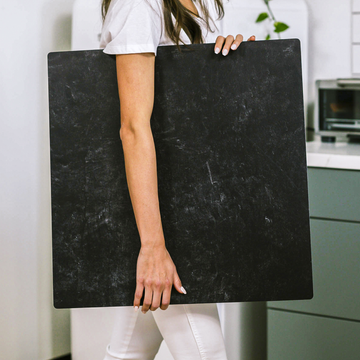Picture this: you're scrolling through Instagram when a stunning product photo stops you mid-scroll. A sleek watch rests on a pristine marble surface, the lighting is flawless, and those delicate veins in the stone add just the right amount of depth. That's not luck - that's mastering the art of marble backdrops.
Most photographers treat marble like any other background, but the truth is, working with marble requires understanding its unique properties. Whether you're shooting for e-commerce, food blogs, or luxury brands, these insights will transform how you use marble in your photography.
Why Marble Works Magic in Photos
Marble has two superpowers that make it photograph beautifully:
- Dual light reflection: It gives both soft scattered light and sharp highlights
- Natural texture: The veins create depth without overpowering your subject
Lighting Secrets for Marble
Here's how to light marble like a pro:
- Use a large softbox at 45° for glossy marble
- Bounce light off a white card for matte finishes
- Add a subtle rim light to separate subject from background
Real vs. Fake Marble: What Photographers Need to Know
While natural marble looks stunning, synthetic options often work better for studios. Here's why:
- Consistency: Printed patterns look identical shot after shot
- Portability: Rollable backdrops are easier to transport
- Durability: No worrying about stains or scratches
Why Your Brain Loves Marble
Studies show products shot on marble appear 20-30% more premium. That's why luxury brands use it for:
- Jewelry photography
- High-end cosmetics
- Luxury watch campaigns
Ready to try these techniques? Grab your camera and experiment with different marble surfaces. The results might just surprise you!



